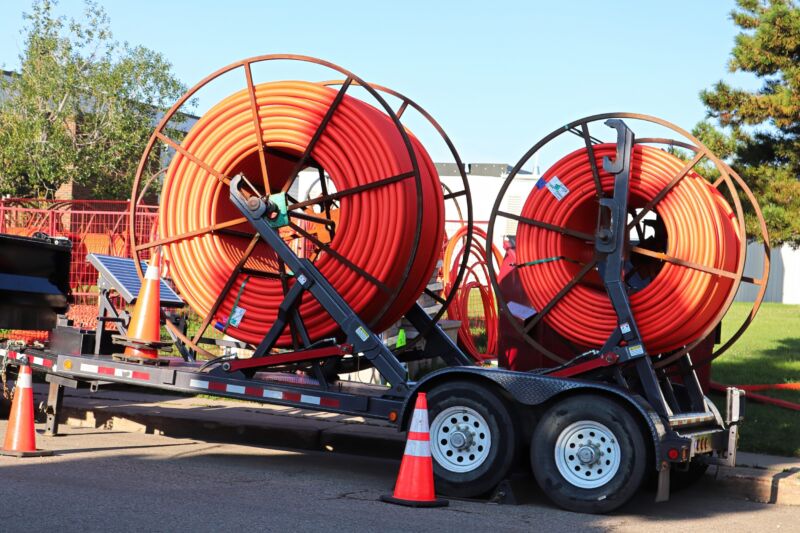
Colorado yesterday eliminated an 18-year-old state law that made it harder for cities and towns to offer broadband Internet service. The 2005 law required local governments to hold an election before offering cable television or telecommunications service, a process that pitted city and town leaders against well-funded broadband industry lobbying campaigns.
Gov. Jared Polis, a Democrat, signed a bill to eliminate that law yesterday. The bill had been approved by the State House in a 48-14 vote and in the Senate by a 31-4 vote. Both chambers have Democratic majorities, but the votes didn’t go entirely along party lines; all of the “no” votes came from Republicans, but other Republicans joined Democrats in approving the bill.
The bill signed by Polis “gives local governments the authority to provide broadband service, either on their own or by partnering with industry service providers, without holding a local election,” the Governor’s Office of Information Technology said.
“Each local government is in a unique position or different phase of connecting residents to high-speed Internet, and this bill allows them to establish broadband plans that meet the needs of their communities,” Colorado Broadband Office Executive Director Brandy Reitter said.
Going forward, cities and towns won’t have to hold elections to opt out of the 2005 restriction on municipal broadband. A vote to opt out of the state law didn’t guarantee that a city or town would build a network, but the vote was a necessary step and in some cases resulted in a municipal broadband service.
Local voters rejected telecom lobby campaigns
There are 272 municipalities in Colorado, and over 120 of them voted to give themselves the authority to offer broadband, even as local votes necessitated by the state law sometimes attracted lobbying campaigns from cable and telecom groups.
In 2017, when Fort Collins voters considered a ballot question to authorize a city-built broadband network, an industry-funded group called “Priorities First Fort Collins” spent $451,000 campaigning against the municipal broadband effort. Priorities First Fort Collins received nearly all of its funding from two groups: The Colorado Cable Telecommunications Association, which counted Comcast as a member, and a group run by the city’s chamber of commerce, which had both Comcast and CenturyLink as members.
A pro-municipal broadband group spent less than $10,000 in the campaign, but voters rejected the telecom lobbying effort and approved the ballot question. A Fort Collins municipal broadband service went live in 2019.
There have been 123 local ballot questions on overriding the state law as of the November 2022 elections, according to the Colorado Municipal League. Residents voted to opt out of the state restriction 122 out of 123 times, with the lone defeat coming in Longmont in 2009 after an industry lobbying campaign.
Longmont held another vote in 2011, and city officials were better prepared for industry lobbying the second time around. The 2011 measure passed with about 60 percent of the vote, and Longmont now offers fiber Internet directly to residents.
State capital Denver chose to opt out of the state law in 2020 in a ballot initiative supported by over 82 percent of voters. Overriding the Colorado law at the local level was easy enough that some municipal broadband advocates no longer considered it a significant barrier.
https://arstechnica.com/?p=1936108

